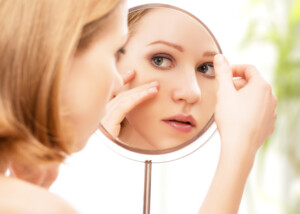
Going on vacation soon and wondering how this might affect your use of Accutane?
Here are doctor guidelines for Accutane while you are enjoying your vacation.
The use of Accutane while you are vacationing may need to be altered, depending on some factors.
“Accutane can increase sun sensitivity, so risks for sunburns are significantly increased when on vacation,” says Dr. Tess Mauricio, MD, FAAD, a leading board certified dermatologist from Stanford University Medical School and CEO of MBeautyClinic.com.
This doesn’t just apply to a visit to the tropics. Even if you’re planning on visiting a northerly location, you’ll likely be outside for extended periods of time while sightseeing, standing in lines, etc. That means a lot of exposure to the sun’s rays.
Even a ski trip can mean a higher risk of sunburn (to the face) due to extended time outdoors and sunlight reflection off the snow.
“The decision to stop Accutane is a decision a patient has to discuss with their doctors,” says Dr. Mauricio.
“They have to weigh pros and cons to stopping. The patient has to be realistic and honest with the doctor as far as the amount of sun exposure that they will get during vacation.”
This means revealing if the location is of high altitude, which means a higher risk of damage to the skin from ultraviolet radiation.
“If patients are on a low maintenance dose, and will be diligent about sun protection and avoidance, Accutane does not have to be stopped.
“Patients may consider the use of an oral antioxidant like Heliocare and ingestible or intravenous glutathione in addition to topical sunscreen and sun protective clothing.”
Five Common Side Effects from Using Accutane
• Dry Skin and Lips: Severe dryness, peeling and chapping of the skin and lips are very common, often requiring regular moisturization.
• Dry Eyes and Nose: Accutane can cause dryness in the eyes and nasal passages, potentially leading to irritation, discomfort and frequent bleeding from the nose.
• Joint and Muscle Pain: Many users experience aches and pains in their joints and muscles, which can vary in severity.
• Increased Sensitivity to Sunlight: The medication can make the skin more prone to sunburn, requiring users to be cautious with sun exposure and use sunscreen.
• Headaches: Frequent or severe headaches are a common side effect, potentially affecting daily activities. And who needs a headache when on vacation?!
 Dr. Mauricio is an internationally recognized cosmetic surgeon and the youngest woman to hold the position of President of The San Diego Society for Dermatologic Surgery.
Dr. Mauricio is an internationally recognized cosmetic surgeon and the youngest woman to hold the position of President of The San Diego Society for Dermatologic Surgery.
 Lorra Garrick has been covering medical, fitness and cybersecurity topics for many years, having written thousands of articles for print magazines and websites, including as a ghostwriter. She’s also a former ACE-certified personal trainer.
Lorra Garrick has been covering medical, fitness and cybersecurity topics for many years, having written thousands of articles for print magazines and websites, including as a ghostwriter. She’s also a former ACE-certified personal trainer.
.









































